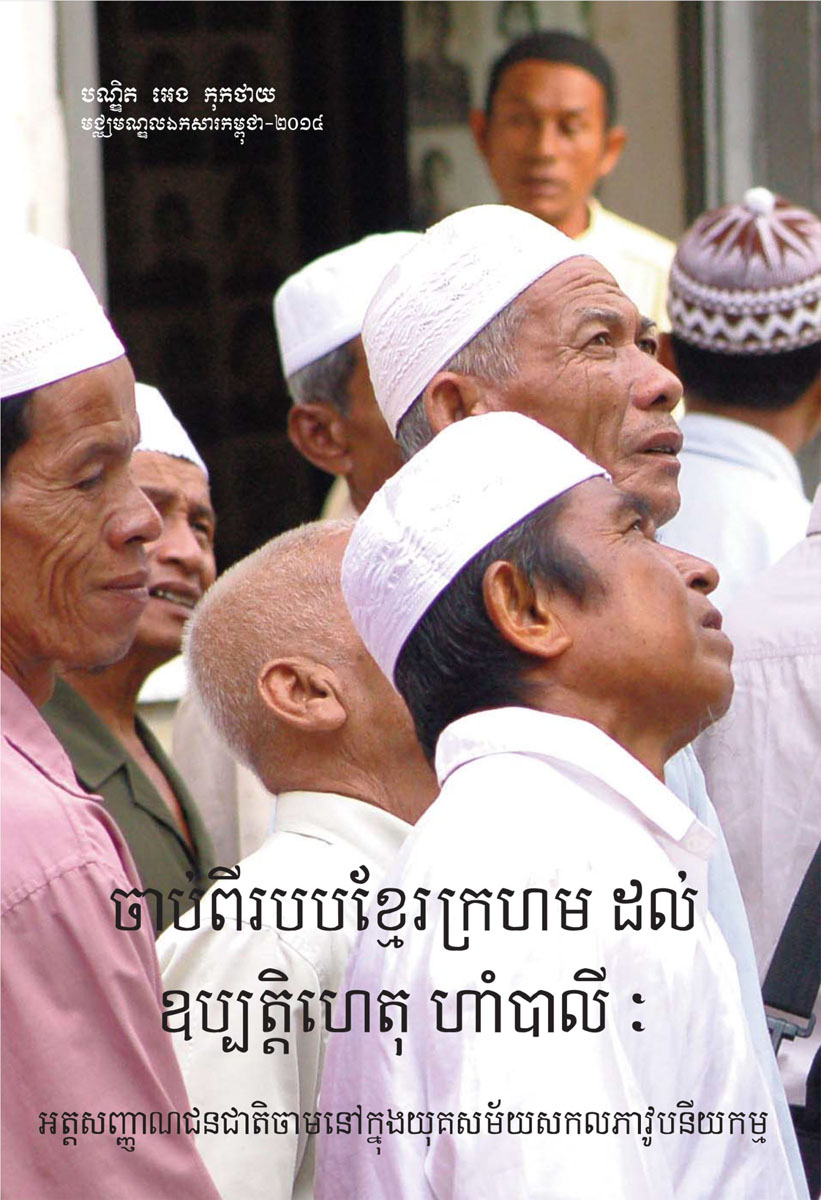This book explores different forms of Cham identity in relation to this minority’s history, society and culture. It has three goals: first, to provide the most comprehensive overview of Cham history and social structure; second, to illustrate how Cham identities have changed through time; and third, to consider whether in the aftermath of Democratic Kampuchea and the Cold War Cham became radicalized. Its theoretical position is that the group’s religious, ethnic and other social identities can be classified as core (those that are enduring) and peripheral (those that are more changeable depending on new social and global contexts). Core identities include being Muslim (religious) and descendants from Champa whose indigenous language is Cham. Peripheral identities are sectarian, economic and political.
As immigrants to Cambodia, Muslims, and victims of genocide, the Cham have been associated with terrorism. In the process of constructing their peripheral identities, after genocide and especially after the Cold War, they are suspected by some Khmer, foreign governments and international observers of having links with, attempting to and committing acts of terrorism, both in Cambodia and southern Thailand. Other factors such as weak secular education, unregulated and open Islamic revival, and the strong need for overall community development, such as improved living standards and education, led to further suspicions of terrorism. Cambodia’s weak rule of law, fledgling financial system, immature anti-terrorist measures, corruption and porous borders also contributed to the terrorist stigmatization of the Cham.
Terrorism is at the pinnacle of the problems facing the Cham in their attempt to revive their community and reconstruct their peripheral identities. Little has been studied about the Cham. By examining the Cham’s origins in Champa, their arrival in Cambodia, religious conversion, political affiliations, and social structure, it is possible to understand better their core identities as ethnic Cham and Muslims and whether they have become radicalized. In addition, this book will shed light on the ways in which their peripheral identities change over time and how these identities are affected in an age in which Islamic revival, global aid and terrorism bring fresh challenges to the community.
This research seeks to contribute to the study of identities of an Islamic and ethnic minority group in a Buddhist majority country as the group recovers from genocide, is increasingly exposed to global flows, and suffers from the threat of being pulled into global terrorism. It seeks to contribute to our understanding of the Cham which receives little scholarly attention. It also attempts to contribute to the study of identity.
Author Biography:
Eng Kok-Thay: Kok-Thay received his Ph.D. Degree in Global Affairs at Rutgers University in 2012. Born into an impoverished family in Chi Kreng district, Siem Reap province, Kok-Thay is the only son in a family of five siblings. As a child Kok-Thay frequently swam Chri Kreng River, which he jumped into from an ancient bridge spanning the river. Chi Kreng district is an area around Tonle Sap Lake where the Khmer Rouge frequently attacked in the 1980s and early 1990s. Accordingly, Kok-Thay’s family fled to Siem Reap provincial town in 1991. Angkor temples became his playground, although some of the temples were still controlled by the Khmer Rouge. Attempting to understand the Cambodian genocide and civil war, Kok-Thay volunteered for the Documentation Center of Cambodia (DC-Cam) in 2001. Kok- Thay translated “The Journey into Light,” a historical autobiography by a Cambodian American, which was published in 2005. Before coming to Rutgers University, Kok-Thay received his M.A. in Peace and Conflict Studies from Coventry University. In 2007, Kok-Thay completed his M.S. degree in Global Affairs with support of a Fulbright Scholarship. Currently, Kok-Thay is a Research Director and Deputy Director at DC-Cam. In this capacity, he has worked with scholars from around the world on their research on Khmer Rougerelated topics. He is currently supervising several research projects, and he also leads the Book of Memory project, which aims to document two million names and biographies of people who died under the Khmer Rouge. His research on the experiences of Cham people under the Khmer Rouge and their level of radicalism today is also being published by DCCam.

